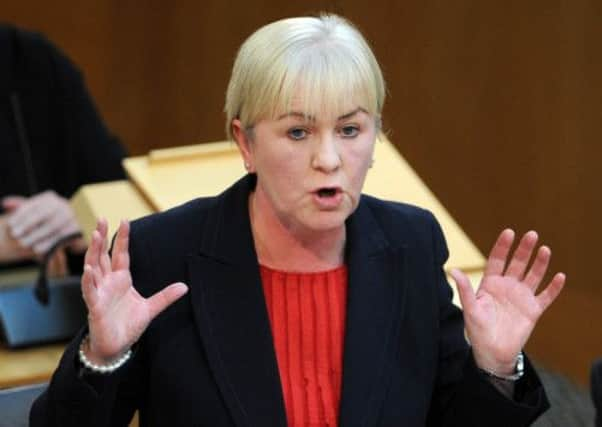Leaders: Lamont looks like failing leadership test over Falkirk


She is wrong – the right word is not “may” but “must”. It must be re-opened following the allegation that a couple did not withdraw, as had been claimed, damning evidence that the process had been corrupted. To leave things as they are will be infinitely more destructive, not just to her, but to Labour in Scotland.
Ms Lamont needs to realise that people understand that this was not just a storm in a constituency teacup, nor indeed that it revealed something deeply troubling about Labour’s relations with a major party funder – the trade union Unite – but that it turned into a hurricane that threatened to be a disaster for all of Scotland.
Advertisement
Hide AdAdvertisement
Hide AdAs is well-known, Unite’s attempts to ensure that one of its leading figures would be picked as the Falkirk candidate led to the union getting as many of its members to join the local party as possible. When suspicions arose that members who worked at Ineos’s Grangemouth refinery and petrochemical complex were being joined up without their knowledge, Labour quite properly suspended the process and investigated what was going on.
That led to Ineos suspending Stephen Deans, the full-time company-salaried Unite convener at Grangemouth on suspicion he had been using his work time on unauthorised political activity, leading to a strike and the threatened closure which could have cost thousands of people their jobs.
But before that crisis erupted, Labour’s investigation had learned that the Unite members said to have joined the party without their knowledge or willingness had withdrawn their complaints so the union could claim, against a great heap of circumstantial evidence, that it had done nothing wrong. Now that appears to be in doubt. ALthough Labour claim to have the sworn affadavit and to also have spoken to the complainant.
The central suspicion now is that some of the evidence before the initial inquiry was fabricated. This surely must mean that Labour, before it re-embarks on the selection, has to find out if this is true, and if so, who did the fabrication, for surely no democratic party can tolerate subversion of its own democracy.
Ms Lamont’s inability to get to grips with this situation, hiding behind the smokescreen that this was a Westminster and not a Holyrood selection, is woeful. Does she really lead Labour in Scotland? Or does she have to defer to Ed Miliband, the UK leader? And are both their strings really pulled by Unite?
This is a severe test of her leadership. If the inquiry is re-opened and its findings made public, she might pass it. Do neither, and she will be judged to have failed and Unite to have won. But the biggest loser in all of this will be the Labour Party.
Public response a Games-maker
With just under nine months to go until the Commonwealth Games begin in Glasgow, it is excellent news that less than a tenth of the tickets remain to be sold. The organisers can be confident that the Games will be a sell-out and the athletes will compete against a background of full venues and enthusiastic spectators.
We presume that the organisers have learned from the London 2012 Olympics when, to general dismay and not a little ire, early events which were supposed to have been sold out took place against swathes of empty seats. Many of these, it turned out, were supposed to have been sold by foreign ticket agencies but weren’t and it was not cost-effective for the agencies to return them. But that is easily remedied and, with lessons learned, should not be a problem in Glasgow.
Advertisement
Hide AdAdvertisement
Hide AdThe ticket sale success matches the preparation work which was last week adjudged by the Commonwealth Games Federation to be focused on “delivering the best Commonwealth Games ever” which has to be a considerable vote of confidence. The organisers, while pleased with the compliment, promised that no complacency will seep in and that their efforts will be unremitting.
What particularly pleased the Federation was the Scottish public’s response – from carrying of the Games’ baton to volunteering – indicating that people are embracing the event. Now, with nearly three-fifths of the one million tickets having been bought by people living in Scotland, the country is showing that it is ready to embrace the competitors too.
Certainly, Scots will want Scots to win as many medals as possible, but the near sell-out also assures all athletes that their success will be warmly hailed too.